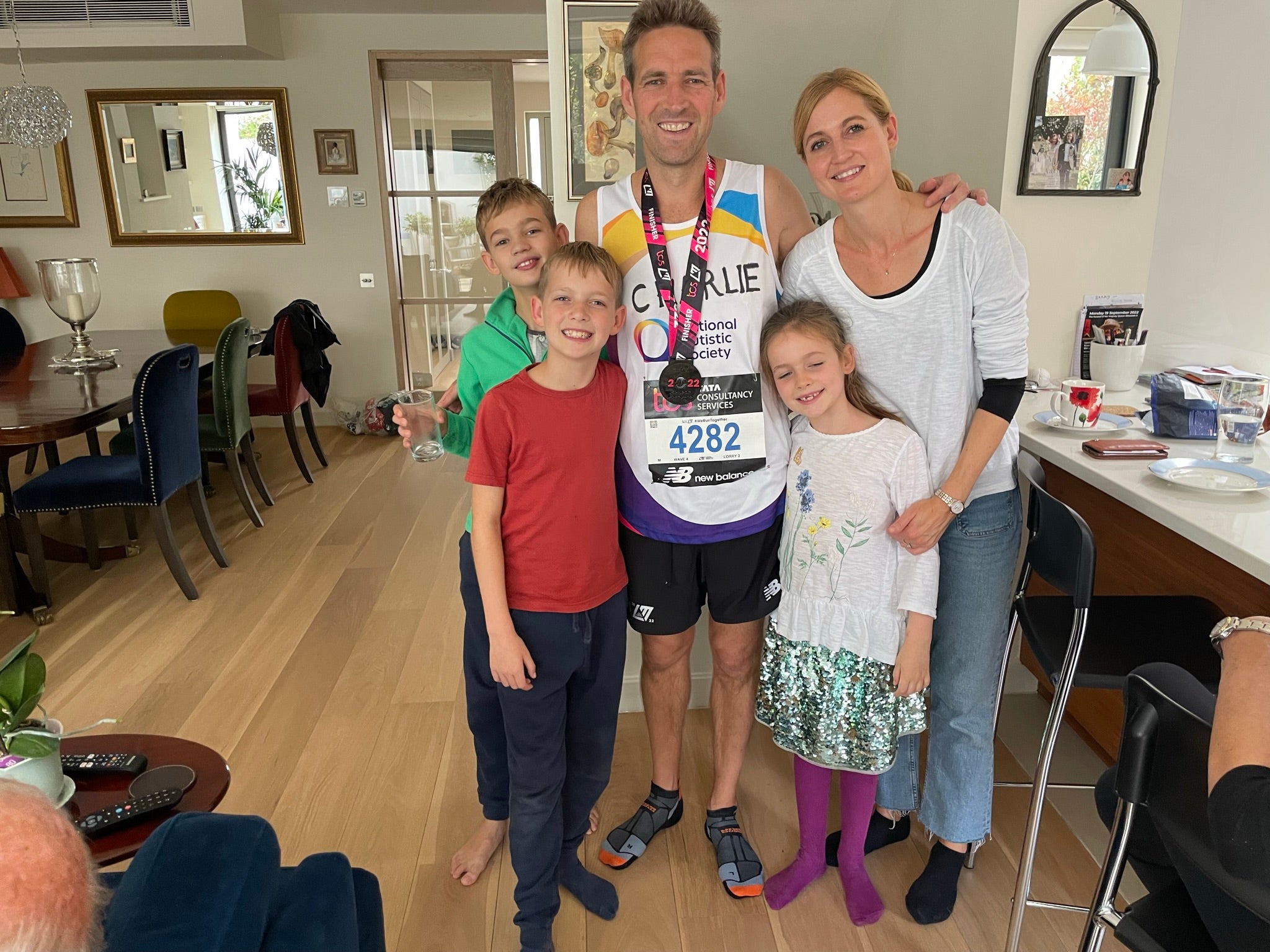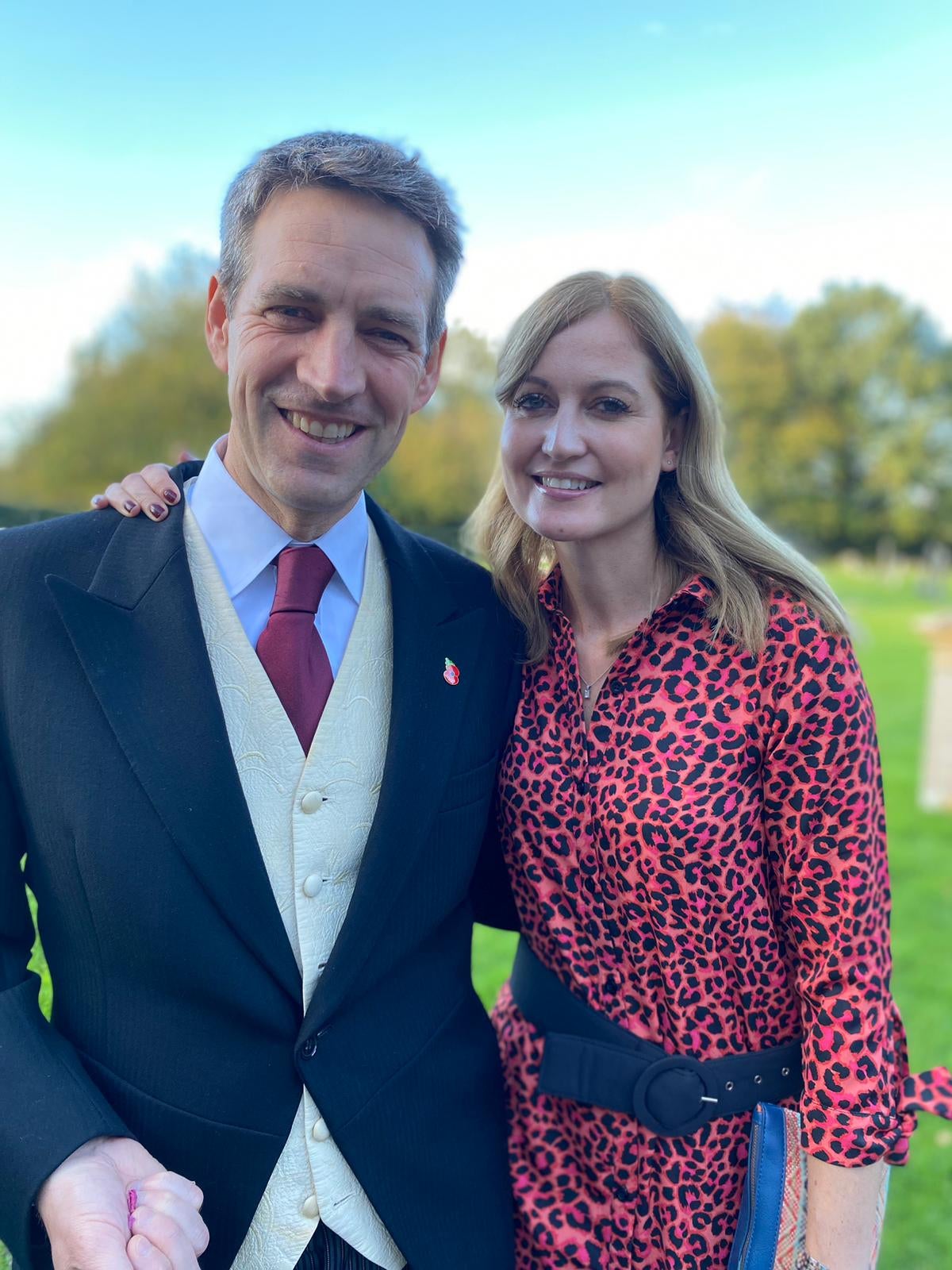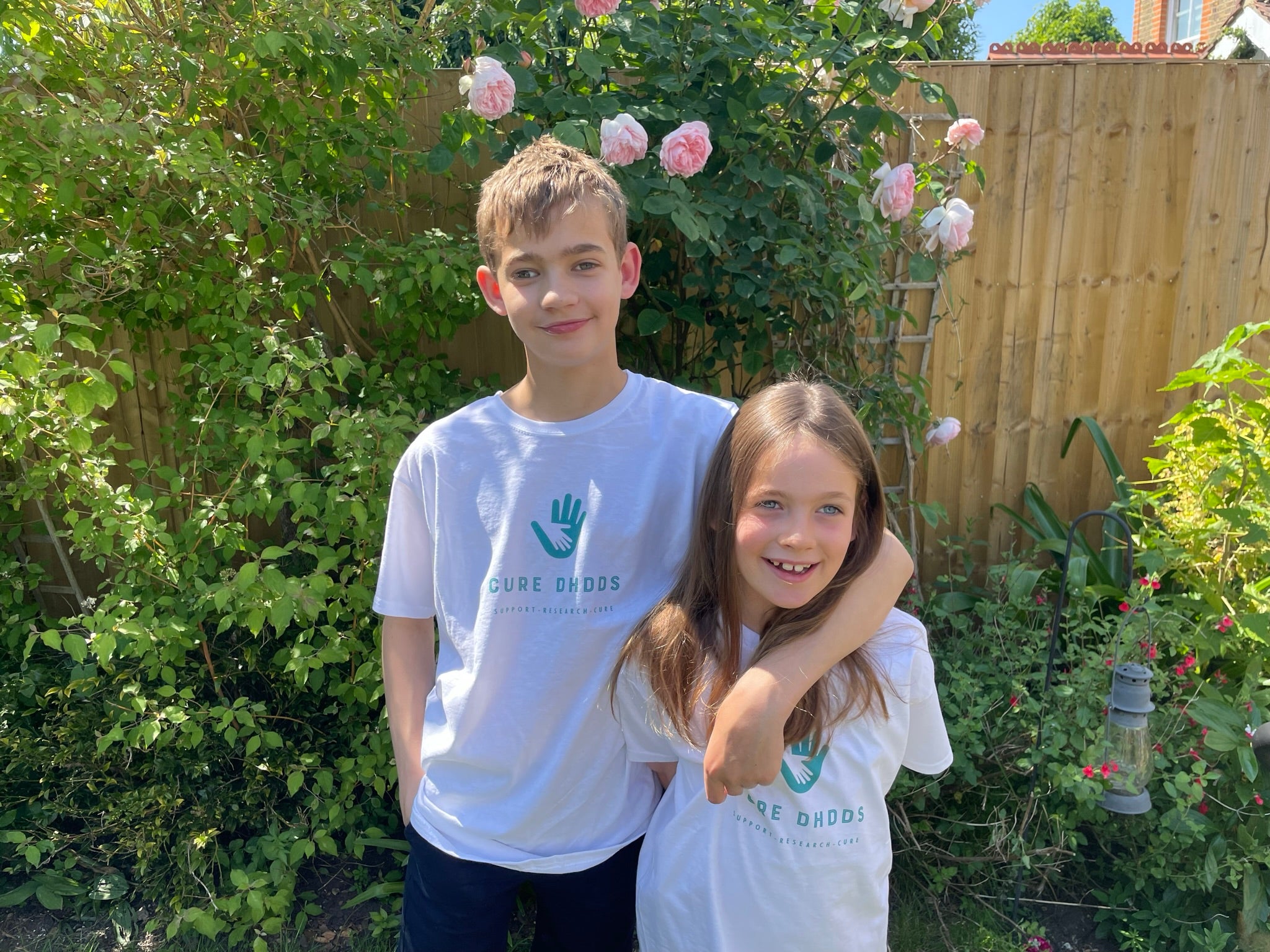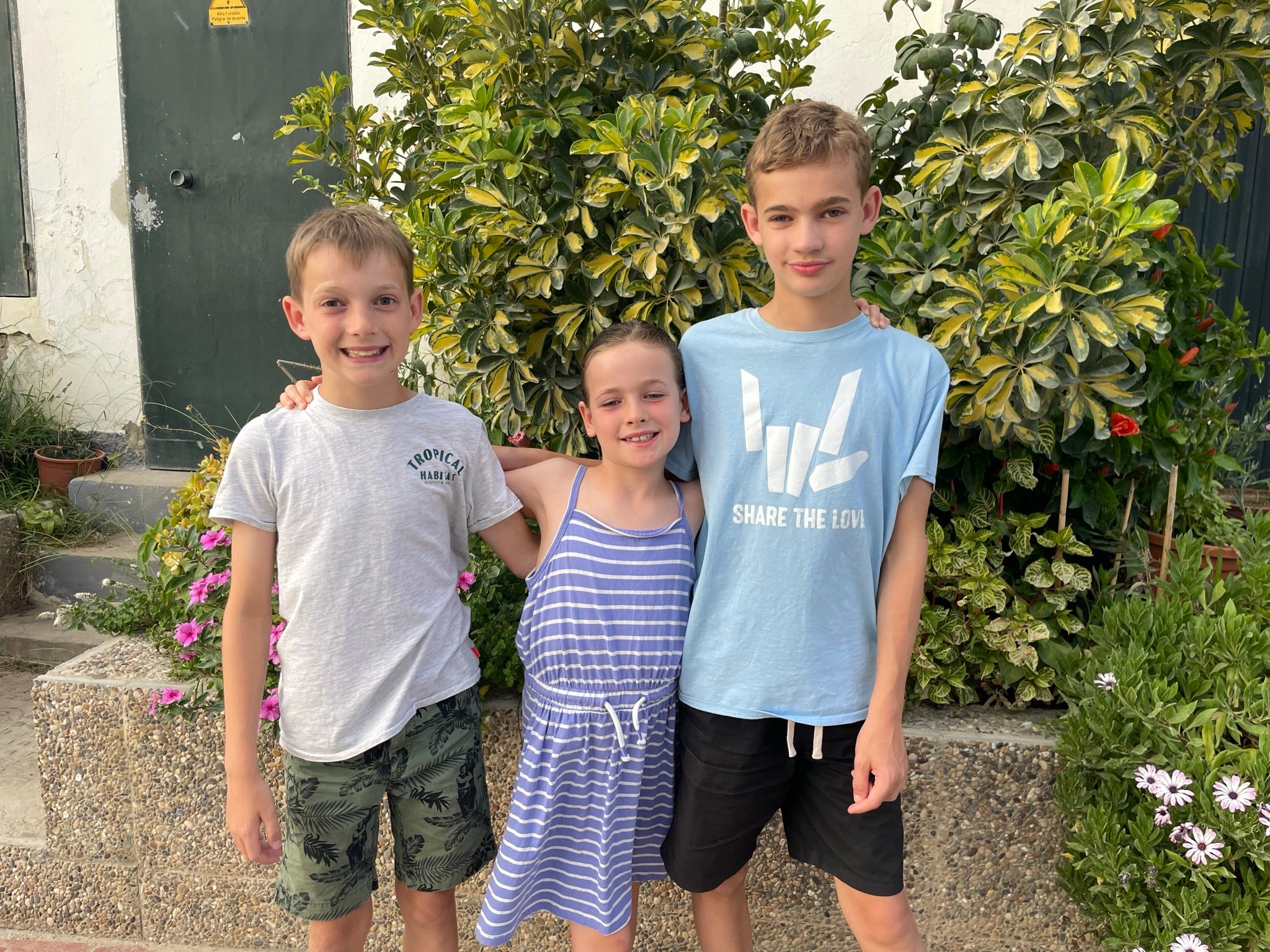‘My children’s condition makes them just two of seven cases worldwide – we’re racing against time’
The family have set up their own charity to tackle DHDDS

A family whose two children have a gene mutation so rare they are two of just seven confirmed cases in the world feel like they are in “a race against time” to find treatments.
Mel Dixon, 45, and her husband Charlie, 47, who live in East Sheen, learned that two of their three children – Tom, 14, and Rosie, nine – have a DHDDS gene mutation after years of appointments and testing.
The neurodegenerative condition causes tremors, coordination issues, and learning difficulties, potentially leading to Parkinsonism and dementia.
When diagnosed, the couple were told that there were only 59 confirmed cases worldwide – although there are 70 documented now – and that there is no treatment available.
Of Tom and Rosie’s particular DHDDS gene mutation, which can cause children to experience developmental delays and seizures, currently there are only seven cases confirmed worldwide, placing them in the nano rare category.
Day to day, the two children use weighted cutlery to eat because their hands are not “steady enough”, they use heavy glasses which are half full to prevent spillages, they use thick pencils to aid with their grip, they struggle with their balance, and they learn at a slower pace – the “little things that we take for granted”, Mel said.

Given there is currently no treatment, Mel and Charlie are fearful of the future as they do not know how quickly their symptoms could progress – and this is what led the couple to set up their own charity, Cure DHDDS, in 2023.
The couple hope to raise awareness, support families, and help drive research into the ultra-rare DHDDS gene mutations to find treatments before irreversible progression of the condition takes place.
“Even if you meet Tom and Rosie briefly, you may not notice they have challenges – yet every day this mutation is untreated, it’s causing them damage,” Mel said.
“They’re kind, resilient, funny, and loving. My daughter loves singing and dancing, and my son loves technology, cars, and trains. He always looks out for Rosie and makes sure she’s okay, and Harry is very protective of them both.
“They both have so much joy to give the world, and are more than worth every bit of this fight.
“Our hope is that if we can help some of those symptoms, or stop them from getting worse, they could potentially be independent later on if we can intervene in a timely manner.”
Mel and her husband Charlie, who works in fund management, have three children – Tom, 14, Harry, 12, and Rosie, nine.
After Tom and Rosie were born, they were “late with all the milestones”, such as walking and speaking, and both were diagnosed with mild learning difficulties and dyspraxia, which affects their co-ordination, while at primary school.
At the age of seven, Tom was diagnosed with autism as well – but before this, Mel and Charlie had started to notice a “tremor”, which was “the anomaly”.

“When he was going to do certain movements, I would notice a hand shake and it just seemed to be increasing,” Mel said.
The family met multiple neurologists but no cause for the tremors or learning difficulties was discovered, so they decided to go to a private clinic which screened for a range of genetic conditions.
The first panel of test results came back as negative, so the couple hoped the children’s symptoms would improve over time – but this was not the case.
It was only after Tom and Rosie underwent Whole Genome Sequencing testing at St George’s Hospital in London, which can detect changes in your genetic make-up, that the DHDDS gene mutation was discovered.
“We got the call from the geneticist, and she said they’ve both got identical variants. They’ve got one spelling mistake (a mutation) in a very important part of their DNA,” Mel said.
“We’ve all got spelling mistakes, but it’s where they are, and their mistake is in the wrong place.”
The couple were hoping for a diagnosis that would be treatable, but instead they were told there is no treatment, it is neurodevelopmental and neurodegenerative, and it is ultra rare, which was a “difficult pill to swallow”.
Without treatment, symptoms such as psychosis, Parkinsonism, and dementia can take hold of many DHDDS patients.
“In rare cases, such as ours, it’s the families that end up advocating for the treatments,” Mel said.
“We had waited months for this and then we were told there’s literally nothing, there’s no pathway.
“We’re basically waiting for symptoms to progress and then we’re just reacting to their symptoms.”
Mel described the diagnosis as “overwhelming” and “devastating”, and her only source of information was a medical paper, which contained details of 25 case studies with the DHDDS gene mutation.
“We’re up against some potentially devastating symptoms if it’s allowed to progress to that point,” Mel said.
“Not everyone has had dementia, and the timescales at which things happen are still unknown.
“There are some at 17 who are losing their ability to walk and then there are some who are more able later on in life and have had a much slower decline than others.”

While the two children never complain and are extremely resilient, Mel and Charlie knew they needed to be proactive to try to find a “solution” – and thus their charity, Cure DHDDS, was launched in April 2023.
They have been thrust into a world of science and “lobbying for treatments”, and they have since created a Facebook group called Cure DHDDS and NUS1 Community, which now has 100 members.
They have 11 research projects which are ongoing, they held the first DHDDS conference online last year, which was a “proud moment”, and they are working with scientists and specialists across the world to try to find therapies.
The couple believe knowledge is power and said their children are “a huge motivational force” in what can feel like a “hopeless situation” – but their greatest obstacle is money, as they need millions of pounds to fund research.
With a collaborative approach, and their passion, they have “hope” they will find a therapy that will help their children and others.
“I’ve got no control, it’s an uncontrollable situation, but I’m working all the time to try and change that and to give them a better outcome and to turn things around for them,” Mel said.
“It feels like a race against time… but the way I function and the way I’ve dealt with this is just never give up, and I really feel that if I give this my all, I can make a difference.
“When you’re told there’s nothing they can do, don’t accept it. Work and fight for what you believe, and there’s nothing greater than fighting for your children.”
To find out more about the charity, visit: curedhdds.org. To donate, visit the fundraising page here: gofundme.com/f/Help-find-a-cure-for-our-dhdds-warriors.
Join our commenting forum
Join thought-provoking conversations, follow other Independent readers and see their replies
0Comments